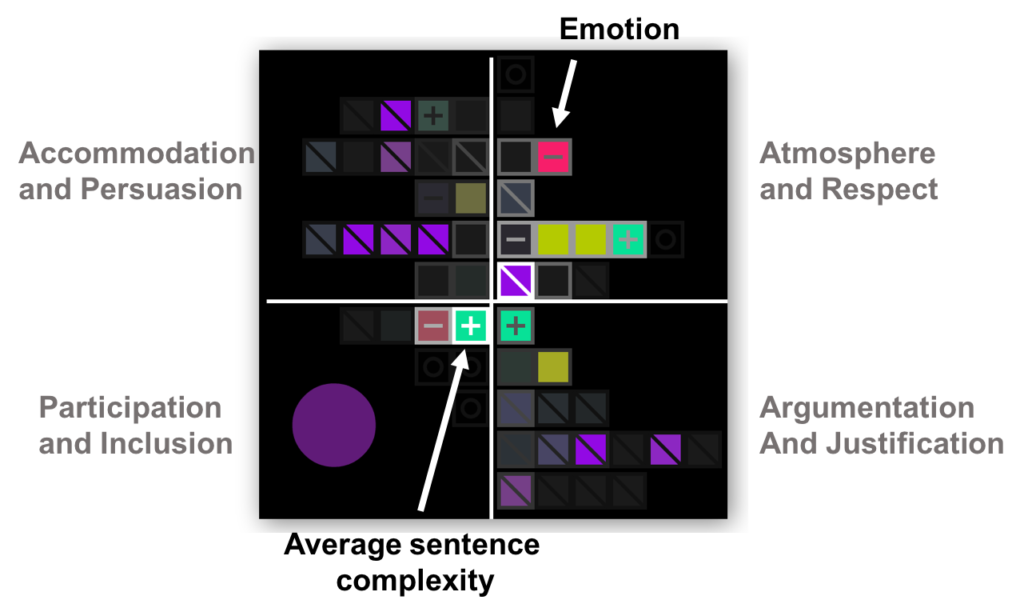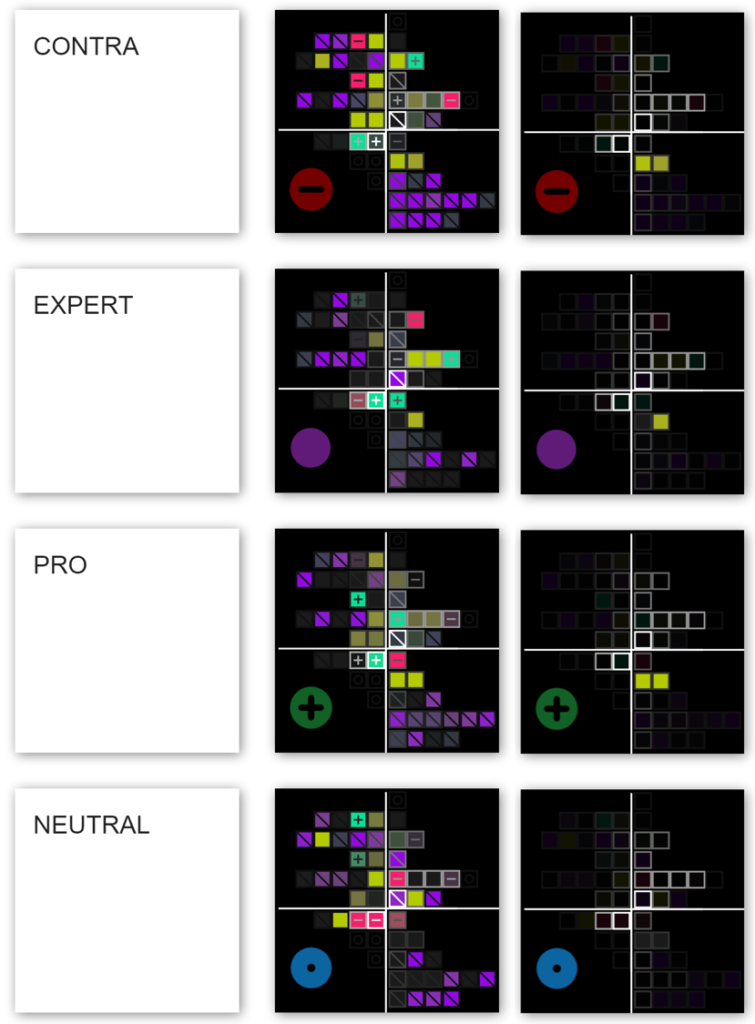Eike Mark Rinke
Mannheim Centre for European Social Research (MZES), University of Mannheim, Mannheim, Germany
Welcome to a very special issue of the Political Communication Report. It is my pleasure to congratulate Björn Buß (Leuphana U of Lüneburg, Germany) and Louisa Imperiale (American U, Washington, DC) on their selection as new webmaster and editor of PCR (Björn) and manager of the divisions’ social media (Louisa). They will come in with fresh ideas and energy to their positions in January and we can all look forward to seeing them develop our divisions’ communications further during the next three years. See here for more.
As I pass the baton to Björn and Louisa, let me thank the many contributors to the newsletter, who have been gracious with their time to fill the series of PCR features we have published during the last years. I should also like to thank the leadership of the divisions as well. A special thanks goes out to student assistant Max Van Poele, who volunteered to help making everything that happened during the last year of my tenure a reality. Most importantly, I would like to thank all of you in the community of political communication scholars who have contributed to our platforms, offered words of appreciation or just made good use of what the information we have offered there for you. All of you have made the work put into the newsletter and divisions’ social media offerings during the last three years rewarding. It has been a pleasure to serve you by bringing relevant information to you and highlighting your work as division members. Thank you!
My final “letter from the editor” seems like a good occasion to take a brief look back at where we came from and where we stand now. The goal three years ago was to develop our online communications into an information service tailored to the interests of political communication scholars, including everyone from the most senior luminary in the field to the most junior college student.
Looking at the growth—in audience numbers, professionalism, intellectual diversity, and community engagement—we have seen during the last years, especially on our social media channels, I think we have come a long way towards that goal. Our Facebook group today is the largest of all 47 APSA sections and 31 ICA divisions/interest groups with its 2000+ members. Our Twitter community, with its more than 1.5k followers also is the largest of any APSA section and the second largest of all ICA divisions and interest groups (only the Ethnicity & Race in Communication division has a more popular presence). As our channels grew over the years, they began to form what, I think, today are the most important information gateways for political communication scholars worldwide.
An important part of the phenomenal growth has come about because we have tried to provide an information service that, while remaining faithful to our core activity of explaining and understanding the many aspects of political communication, is useful not only to our core constituency of political communication scholars in the social science tradition but also open to other methodologies and epistemologies, including rhetoric, social movement scholarship and others, as well as open geographically, including information relevant to and coming from scholars in all corners of the world.
With our new focus on social media, we have also started the PolComm Publication Friday series and a more extensive documentation and promotion of our division events on Flickr and Twitter. We have also switched from three to two PCR issues per year to reflect the new focus on our social media communications: PCR has evolved to feature less ephemeral information of general interest and more information on the work in our divisions and by our members as well as pointed discussion that should be of lasting interest to our community.
With this double issue, we bring to you new content (more on that below). But most importantly we finally launch the new design for our joint APSA-ICA PolComm website. It has long been time to send our old site into its well-deserved retirement. While long in the making, I am confident that the waiting has been worth it. The site now has a clean, modern look and offers a responsive design that makes it easy to use on small-screen devices like smartphones and tablets. Users can also see the latest information published through our Facebook group on our homepage, making it easy to track new information from the divisions without visiting Facebook. We have cleaned up the whole site and hope it is more usable and easy on the eyes. While not everything is in place yet – a new logo for our divisions is still to come – we do hope and are confident that the new site will be a big and lasting advancement of our divisions’ online communications.
But let us look at the present: What’s in the new issue of PCR before you? For this special occasion, we have produced four features that, I hope, will be of interest to many of you.
- Our feature on Fresh Perspectives in Political Deliberation Research is a collection of six essays that bring in leading scholars working in this most encompassing, diverse, and dynamic area of political communication research. If you are interested in some of the newest developments in research on deliberation, this feature is for you:
- André Bächtiger and Marina Lindell introduce an approach to “benchmarking” in deliberation research: comparing discussions in different types of forums—like parliaments and deliberative mini-publics—by transforming “best practice” cases into benchmarks for deliberative quality.
- Valentin Gold, Annette Hautli-Janisz, Katharina Holzinger, and Mennatallah El-Assady spotlight another methodological frontier in deliberation research: the use of automated tools to estimate the deliberative quality of political communication. They introduce their “VisArgue” project, a suite of methods—soon to be available to everyone—for the automated analysis of discussions transcripts.
- Rousiley C. M. Maia argues that political recognition and the everyday political conversations of citizens should be central themes of a deliberation research that fits the contemporary hybrid communication environment.
- Natalie (Talia) Jomini Stroud argues that deliberation research can be made to uncover possibilities for improving public discourse and shows how the work of her and her team can help us understand the conditions under which productive discussions of citizens in user comment sections flourish most.
- Hartmut Wessler argues how and why deliberation researchers will do well to continue their recent moves to go comparative and contrast the systems of mediated deliberation in different countries.
- Finally, Iain Walker brings a practitioner’s perspective into the discussion as he questions the tendency of deliberation scholars to falsely, as he sees it, view deliberative democracy as a project mainly of and for the political left.
- We feature the most successful division members of the last year, in our—now almost traditional—Award Winner Interviews. What better way to prepare for the 2017 conference cycle than to get to know hopeful new talent and prolific faculty in our field as they answer questions about their award-winning work and their experiences at our conference events?
- 2016 ICA Political Communication Best Student Paper Award: Carina Weinmann
- 2016 ICA Political Communication Best Faculty Paper Award: Lukas Otto
- 2016 APSA Timothy Cook Best Graduate Student Paper Award: Nicolas M. Anspach
- 2016 APSA Paul Lazarsfeld Best Paper Award: Yanna Krupnikov & Adam Levine
- We set our eyes on the future and give to you our ICA 2017 PolComm Preconference Teasers. We asked the organizers of the six preconferences sponsored by our division at ICA 2017 (San Diego, CA, 25-29 May) that still have a running submission deadline to describe what their event is all about. Check out the feature and see if we have a preconference that speaks to your work and interests.
- Political Communication Division PhD Student Preconference
- Populism, Post-Truth Politics and Participatory Culture: Interventions in the Intersection of Popular and Political Communication
- Normative Theory in Communication Research
- Media Performance and Democracy – The Debate Continues
- Online and Newsworthy: Have Digital Sources Changed Journalism?
- Political Communication in the Online World: Empirical Findings and Theoretical Perspectives
- We want to pay tribute to one of the most eminent, progressive voices of the last decades in our field, one that we will miss very much, the past chair of our ICA division Kevin G. Barnhurst, who passed away last year. In our Obituary for Kevin Barnhurst, we reprint in his honor
- the Obituary by John Nerone, his close collaborator of many years; and
- the Final Chapter of Mister Pulitzer and the Spider, Kevin’s last book, in which he proposes a new realism to revive a journalism stricken by existential crisis in the digital era.
Finally, this issue—and my tenure as editor of PCR and the divisions’ webmaster and social media manager—introduces to you and welcomes our new online communications officers, Björn Buß and Louisa Imperiale.
You can navigate the entire issue by using the navigation menu to the right or on top of the screen (depending on the size of your display).
I hope you will enjoy all that the issue offers to you.
It has been a privilege to serve as our community’s newsletter editor, webmaster, and social media manager. I wish Björn and Louisa all the best for their terms. With them, I am sure we will further grow as a community of scholars centered around the communication platforms sustained by our divisions.
Eike Mark Rinke (PhD, Mannheim) is a postdoctoral Research Associate in the Mannheim Centre for European Social Research (MZES) at the University of Mannheim, Germany.





